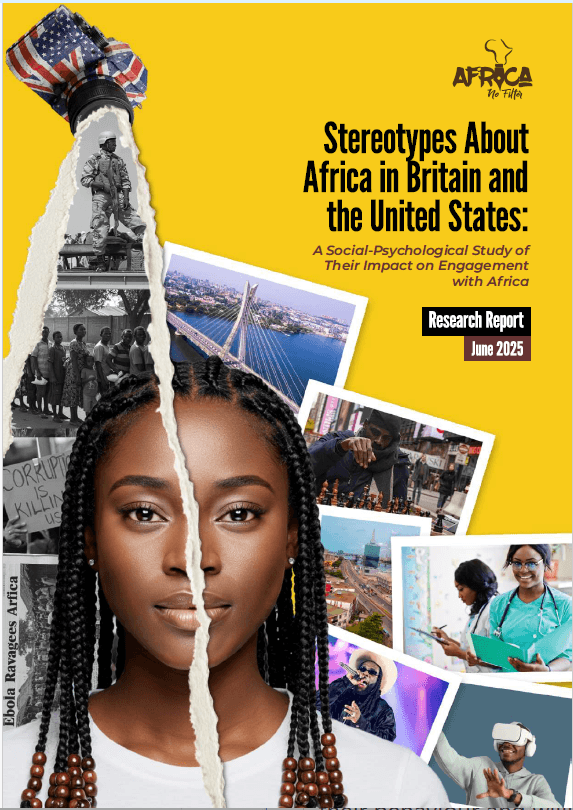There is an age you approach, and everyone around you starts asking questions. Especially the elderly, they start asking you, in their analogies, when you are getting married. They insinuate that at the moment, you are ripe and should commit to building society in the way they suggest. I got curious since I know I will have to deal with a similar situation once the holidays are here.
Besides culture and tradition, does marriage provide any other advantages that would convince me to submit myself to such a commitment? As it appears, marriage is essential. Let's look at some evidence.
Why does marriage exist?
But even before we indulge in the evidence, why does marriage exist? One answer could be for procreation. But, we all know you can procreate with a person you are not married to. So if I can have a child with a person I am not married to, why get married then? In their journey of evolution, our forefathers somehow figured out that procreation within the confines of small units was better. Because the game was survival for the fittest, the marriage system provided the best odds for propagation.
Think through this with me. During conception, 23 chromosomes from each party are contributed to make a new life. Of the now 46 chromosomes, we have dominant and recessive qualities that are being passed down. Nature only favours those qualities that make one fit for survival. Hence, if we are to run this experiment to figure out which qualities are outstanding, we would have to run the same experiment over and over. Having offsprings with one partner presented a better setup for the experiment.
Combining your 23 chromosomes with 23 other random chromosomes will surely bring offspring, but we would not have good data to improve our humanity. Other animals solved this by only allowing the alpha males to mate, the proposition being that alpha males have better qualities. But for human beings, although the alpha male type selection happens to a certain extent, we have refined our experiment and allowed everyone a chance of propagation within given boundaries to control for the quality of our grand experiment. Hence the existence of marriage.
But this is not the only reason people get married. There are economic and psychological reasons behind the idea of marriage.
Benefits of getting married
To start with, economically, married individuals tend to earn much more than single people. Assuming that both parties in a marriage are employed or are engaged in gainful activities, one household with two people will potentially earn more than a household with one individual. There are also gains from the economies of scale within the family. For instance, two people pay rent to one house; the bills are roughly the same as those of a single person.
Having understood that, most of the advantages of getting married are because of the psychological benefits.
Hypothesis one
Two hypotheses try to explain the psychological benefits of marriage. The first one suggests that unmarried people more often than not experience physical and emotional pathology since they lack continuous companionship with a spouse who provides emotional gratification and buffers them against the vicissitudes of daily living. From this hypothesis, we get that the psychological marriage benefits come in the following three ways.
1. Continuous companionship. When you make the 'I do' commitment. You tie yourself with your partner for better or worse, till death do you part, offering the psychological insurance to your partner and yourself, that no matter what, someone has got your back. I am not all alone. In life, we only need that type of validation to live out boldly as we should. Having someone to count on for the rest of your life is not a small feat.
2. Emotional gratification. Love is the greatest gift to humanity. To be able to love and be loved is of crucial importance. Psychopaths are often people incapable of love or ones who never experienced love. Being in a loving, committed relationship provides the emotional gratification that every human craves.
3. Buffer against the vicissitudes of life. Life can be rough sometimes. When it beats you down, all you can do is strive to stand on your feet and march forward as far as you can. While doing all this, you need a person by your side who cheers you on, comforts you when beaten down, and celebrates with you every small win you make. Being married to a person who gives you emotional gratification, has committed to be your companion, and is there with you in the ups and downs, is what we are all looking for, hence the benefits that come with marriage.
Hypothesis two
The second hypothesis proposes that the correlation between marital status and personal well-being is spurious because each variable is dependent on emotional maturity. Per this view, emotionally mature individuals who more readily assume the responsibilities of marriage, are more favourably regarded by potential mates, and deal with stress more effectively. The proposition made by this view ignores that marriage is not a construct reserved for the emotionally mature alone. Everybody needs the benefits from a marriage; hence everybody seeks it. Even if emotional maturity plays a role in making a marriage successful, it is not a reserve for the chosen few.
Marriage and psychopathologies
Marriage is one of the most intense human relationships. As spelt out in the marriage vows, whether you formally say the vows or not, it is built into the relationship that when you get married, you commit to a lifelong relationship, for better or worse, in sickness and in health, in poverty or in riches. These commitments allow us to be vulnerable in a way we wouldn't be with anyone else. It is within the vulnerability that the deep intense emotion grows.
Research shows explicitly that married individuals enjoy higher psychological well-being compared to unmarried. To understand this better, we shall go through different studies that show this; they confirm that there is a close link between marital statuses and personal well-being.
Alcoholism
Studies consistently find more alcoholism and problem drinking among the unmarried compared to the married. Single men are more than three times as likely as married men to die of liver cirrhosis which is partly contributed by the single men finding their roles less satisfying than married men. For married men, the responsibilities are heightened. Married men understand that their decisions affect themselves and the wife, the children, and to some extent, the extended families, making their roles more intense and the responsibility more demanding. You can extrapolate and say that this level of responsibility gives the men meaning and significance in life. Hence they live more intentionally. But as for single men, the lack of this responsibility denies them the opportunity to feel significant, hence the downward depressive decline.
Also crucial to understand is that men are the chief recipients of mental health benefits from marriage. Women have learned to offer each other such emotional help through friends and at times strangers, but for the men, they do not outsource emotional support even from their friends at times, leaving home (marriage) as the only place they can offload. Hence married men are less likely to be alcoholics than single men because they have a support system for their emotional needs. Therefore, it is meaningful for young gents to strive to cultivate and pursue marriage for this reason.
Suicides
When it comes to suicides, the highest suicide cases are of divorced men. These numbers coincide with those of married women. The explanation is, women provide more of a supportive role in marriage; hence, when there is a divorce, the support system dissipates, and the man is left more vulnerable. On the other hand, men tend to be less nurturing in relationships and are more demanding, denying the woman the support system within the marriage confines. If the woman doesn't have a sound support system from other social groups or their career, they become very vulnerable.
Although these statistics seem gloomy, there are a few valuable takeaways. Establish relationships with the proper foundation. Try as much as possible to eliminate the odds of divorce because that is devastating for the man. As for the ladies, marry a man that will offer you emotional support because it might be devastating to you without that type of support within the family.
Life longevity
Research shows that married people enjoy greater longevity than the unmarried and generally make less use of health care services. The married consistently show lower mortality rates than the single, widowed, or divorced persons. Unmarried people of both sexes have higher death rates, whether by accident, disease, or self-inflicted wounds. Partly this can be explained by the fact that married people tend to engage less in risky activities and more in healthy ones, perhaps for the sake of their partners reducing their chances of dying prematurely. Also, because of the emotional support they enjoy, they are less exposed to stress or have a buffer that protects them from being walloped by unfortunate occurrences that would cause mental stress. The reduced levels of mental stress can also translate into physical well-being.
Schizophrenia
As already established before, the mental health benefits of marriage are undeniable, translating to lower hospitalisation rates for schizophrenia among the married. Even when admitted, married individuals are admitted for a significantly lesser length of time compared to their unmarried counterparts. Their conditions are also less risky even when they are suffering from schizophrenia.
Marriage and happiness
Marriage is the best predictor of happiness after controlling for education, age, gender, and race; whereas marriage quality is the best predictor of well-being. While putting the different groups in a happiness rank order, married people are the happiest, then cohabiting partners, followed single people, then widowed individuals, and lastly, the divorced. It, therefore, goes without saying that the married are happier than the unmarried. The major contributor seems to be interpersonal closeness.
Married men are happier than married women because men tend to experience more emotional support from marriage than women. Unmarried men have lower levels of happiness than their female counterparts because women tend to have social networks that support them emotionally as compared to unmarried men. Therefore, single women are happier than single men. However, single women are not happier than married women because, as much as there is a social network to support you emotionally, none comes close to the emotional support that can result from a good marriage.
Current view on marriage
The media glamorizes the single status implying that the unmarried are unencumbered with the problems that beset their married counterparts. The therapeutic benefit of marriage remains relatively unrecognized by most youths, the media, and some helping professionals who, preoccupied with accelerating divorce rates and variant family forms, question the value of marriage in contemporary society. Media messages have minimised marriage, implying it is an outdated institution without recognising the mental health function of marriage. But as we have observed, there are numerous benefits of being in a lifelong commitment because only then will you be vulnerable enough to experience life in its rawest form. Because of the vulnerability, you can look inside and address your insecurities and shortcomings with the support of the person you love. It is within such a system that you can truly become your best self.
Also Read: You're Not One of Us: The Battle of the Tribes Within Kenyan Marriages
Last words
To sum up, it is not lost on me that not all marriages result in the benefits discussed above. Some marriages tend to be toxic and destructive to a person, that the individuals are better off unmarried. The essence of this article is to show that marriage is an institution that can offer you the best odds for living a good life, but it has to be approached with the level of seriousness and commitment that such a life-sustaining institution ought to be approached with. And also, it should be something that we aspire to move towards, for we might be okay today, but when shit hits the fan, it might be your only saving Grace.
Also read: Toxic Relationships: Here Is Why You Must Quit





